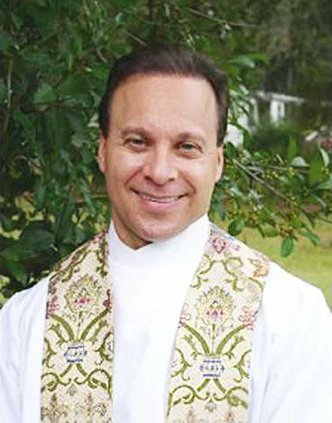If I had to describe how I could tell a Christian just by observing interactions, as in a business meeting, I would probably say I could see the fruit of the spirit in the person’s kindness. In many ways, sheer kindness is often the mark of a person living as a Christian.
In Colossians 2:7, St. Paul tells us that we should “clothe ourselves with kindness.” Dr. Harold Koenig, in his book, “Kindness and Joy: Expressing the Gentle Love,” writes, “Real kindness is altruistic and generous at its core. It involves a giving of oneself to another in a completely other-centered way. Kindness is honest and up front. Kindness expects nothing in return, and is wholly focused on the other person’s good. The kind person must intend to do good for the other.”
When Gen. Robert E. Lee was president of Washington Academy, which was renamed Washington and Lee University, a new student came into his office and asked for a copy of the school’s rules and regulations. Lee replied that the school had no printed rules. He said, “Our only rule is kindness.”
Abraham Lincoln said, “Kindness is the only service that will stand the storms of life and not wash out. It will wear well and will be remembered long after the prism of politeness or the complexion of courtesy has faded away.”
How do we clothe ourselves with kindness? For many of us it is very hard. Our personalities, our temperaments, our experiences of life, make it very hard for us to be kind to others. The competitive world of business, the school of hard knocks, and the lack of kindness in our childhood seem to cripple us, and make us almost incapable of kindness.
If kindness is a fruit of the Spirit, it can only be produced by the power of God, and it is nurtured by being in communion with Jesus. Our hearts and habits have to come under the control of the Spirit every day if we are to be kind.
Clothing ourselves in kindness requires cultivating the habit of kind interpretations. Our tendency is to judge one another, to be clever in our comments, to the point of sarcasm. Instead, love that is kind gives the other person the benefit of the doubt. It is to opt for charity rather than suspicion, to learn to inwardly praise rather than to criticize. This doesn’t mean being naïve, and lacking discernment. But it forces us to see people in Christ, and to think the best of them. It could transform our attitude to others.
Frederick Faber has written that “it is harder for a clever man to be kind, especially in his words. He has the temptation to say clever things; and somehow, clever things are hardly ever kind things. There is a drop of acid in them ... A man who lays himself out to amuse is never a safe man to have for a friend ... There is also a grace of kind listening ... Kind listening is often an act of the most delicate interior mortification, and is a great assistance towards kind speaking.”
Kindness in speaking and listening is an act of humility. It is also more effective than sarcasm. Faber writes, “Satire will not convert men. Hell threatened very kindly is more persuasive than a biting truth about a man’s false position.”
Kindness should never be confused with weakness. The world’s kindness can lead to indulgence which encourages denial of problems, failure to act for the good of others, and excuses bad behavior. Kindness sometimes requires forcing an addict to go through the hell of withdrawal. Kindness means saying “no” to a spoiled child. Kindness may mean reporting a crime committed by a friend, and making them face the consequences. It may be necessary to be tough in order to be kind. That may be the loving thing to do for the good of the other.
We strengthen ourselves with kindness when we recall God’s kindness coming to us through people in our lives, many of whom, though dead, yet speak through their kindness to us in years past. Our hearts are filled with gratitude as we thank God for them.
A prayer: Help us always to be kind; always to make people feel that they are welcome, and that we care; always to think of the feelings of others as much as we would wish them to think of ours; always to respect and never to laugh at the things which are important and sacred to someone else. Help us to walk, looking to Jesus and to make him the pattern of our lives. Amen.
The Rev. Dr. Bob LeFavi, installed member of the Society of Ordained Scientists, is pastor at Bethel Lutheran Church, Springfield.





